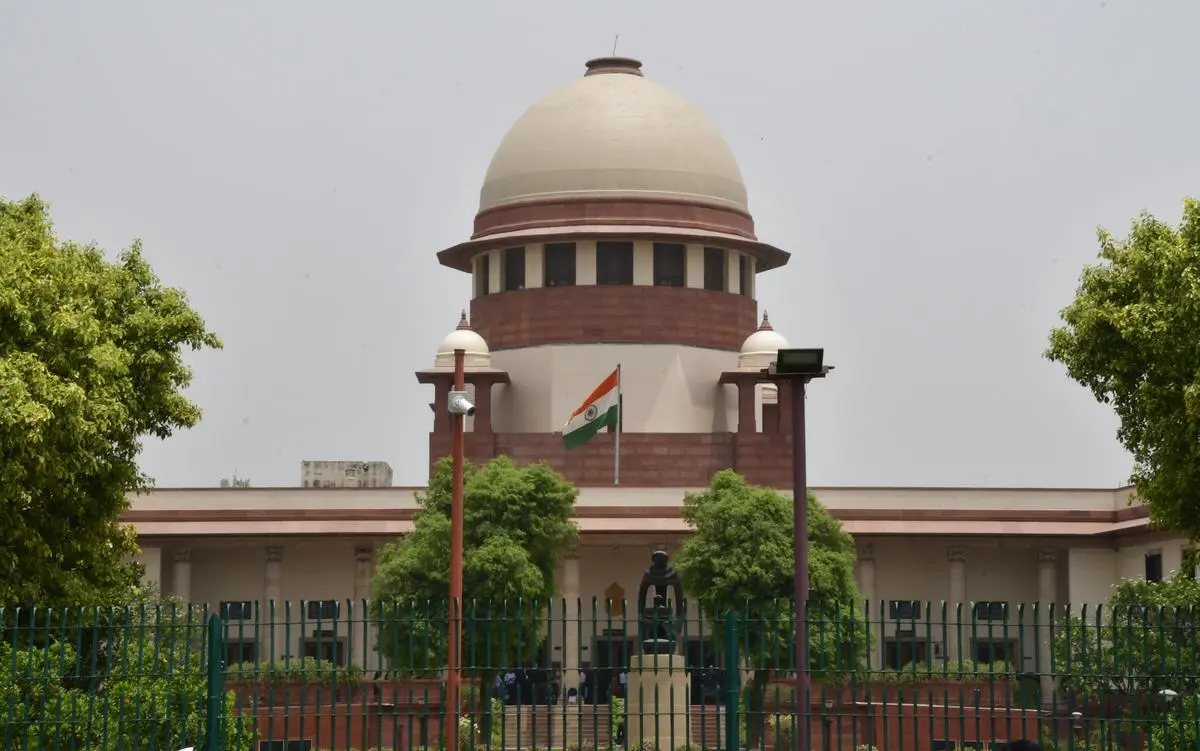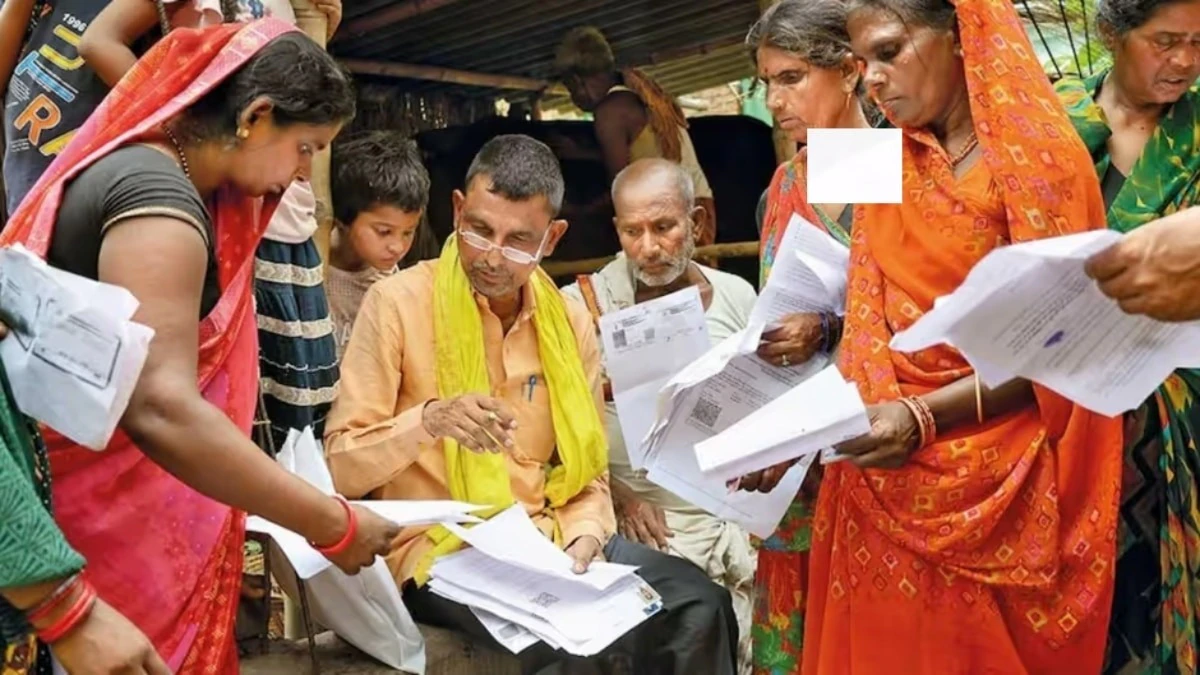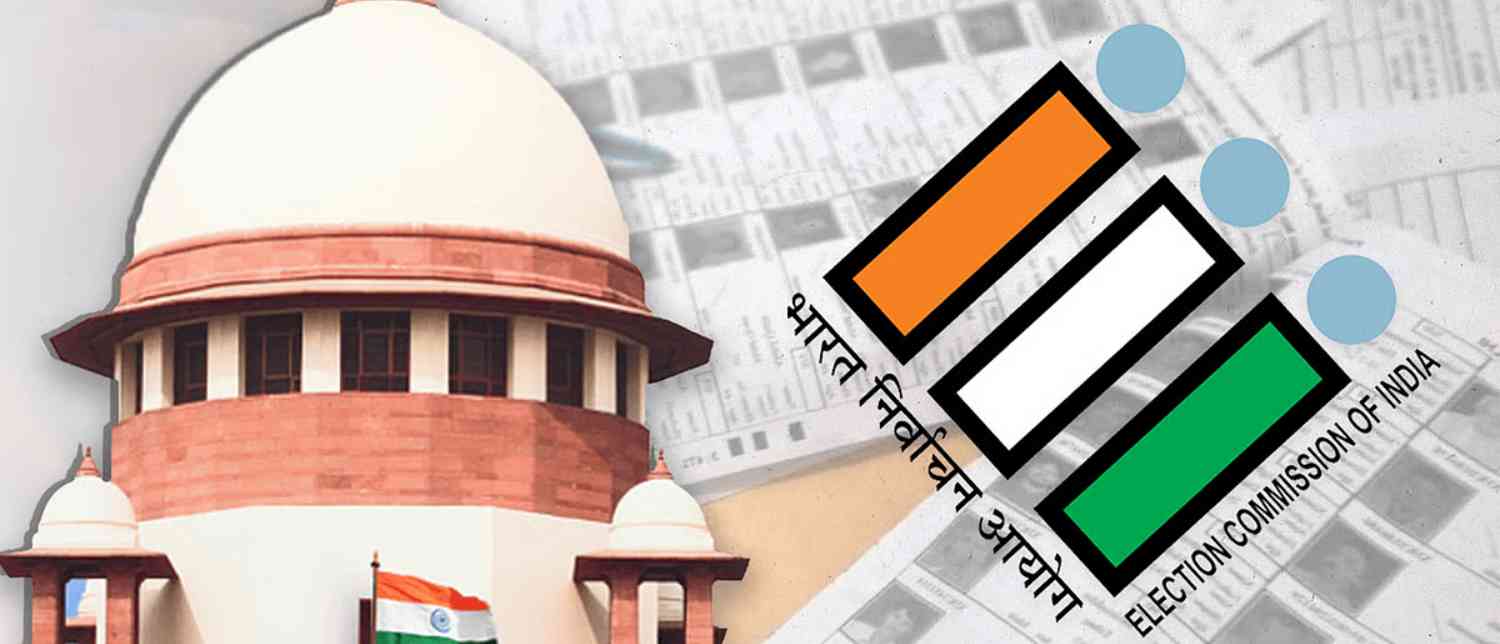The Supreme Court of India has intervened in Bihar’s ongoing electoral roll controversy, directing the Election Commission of India (ECI) to adopt a voter-friendly approach in handling the massive exclusion of names during the Special Intensive Revision (SIR) exercise. In a significant order issued on Friday, the Court ruled that individuals excluded from the draft electoral rolls can submit claims either online or physically, accompanied by their Aadhaar card or any one of the 11 documents already recognized by the Commission.
This directive comes amid growing concerns that nearly 65 lakh voters were left out of Bihar’s draft voter list following the SIR exercise, sparking fears of disenfranchisement in the poll-bound state.

Supreme Court’s Emphasis on Inclusivity
A bench comprising Justices Surya Kant and Joymalya Bagchi underscored that the entire revision process must be designed to ensure accessibility and fairness. “Our attempt is to make the exercise as voter friendly as possible,” the bench remarked, stressing that Aadhaar—being widely held—must be accepted as a valid document to simplify the process.
The Court also directed all of Bihar’s 12 recognized political parties to mobilize their Booth Level Agents (BLAs) and actively assist voters in submitting claim forms. Expressing dissatisfaction, the bench noted that despite there being over 1.6 lakh BLAs deployed across Bihar, only two objections had been filed so far regarding excluded voters.
“Political parties cannot remain passive. After appointing BLAs, what are they doing? Why is there such a gap between voters and their representatives?” the bench observed, urging political parties to play a proactive role in protecting citizens’ voting rights.
Election Commission’s Response
In compliance with an earlier Supreme Court order dated August 14, the Election Commission informed the Court that it had already published the list of excluded voters. The names of around 65 lakh individuals, along with reasons for their exclusion, have been made available:
-
On the websites of all 38 District Election Officers (DEOs) in Bihar.
-
At physical locations such as Panchayat Bhavans, Block Development Offices, and Panchayat Offices.
According to the ECI, the exclusions were based on three main reasons:
-
Death of the voter,
-
Shifting of ordinary residence, or
-
Duplicate entries in the rolls.
The Commission also reported that so far, 85,000 excluded voters have submitted claim forms, while over 2 lakh new voters have registered during the SIR process.
Senior advocate Rakesh Dwivedi, appearing for the ECI, requested that the Court give the poll panel more time to demonstrate that “no genuine voters have been left out.” He emphasized that the revision was carried out thoroughly, with election officers going “door to door,” and that much of the criticism was politically motivated.

A Race Against Time
The Supreme Court highlighted that the window for filing claims and objections will close on September 1, 2025, making the process a “race against time.” Although several petitioners sought an extension, the bench made it clear that, for now, the deadline stands firm.
Justice Surya Kant noted: “Today, we are not extending the date. However, if the Election Commission feels the need, it may consider such a request.” The final electoral rolls are due to be published by September 30, 2025, keeping the timeline tight as Bihar heads toward crucial elections.
The next hearing in the matter has been scheduled for September 8, 2025, when the Court will review compliance with its latest directives.
Political Parties and Petitioners’ Stand
The revision exercise, announced on June 24, 2025, has triggered sharp criticism from opposition parties and civil society organizations.
-
Kapil Sibal, appearing for RJD MP Manoj Jha, argued that the exclusion of 65 lakh names was “unlawful” and demanded more time to correct errors.
-
Prashant Bhushan, representing the NGO Association for Democratic Reforms (ADR), urged that the ECI’s website should also display details of documents submitted by voters seeking inclusion.
-
Other petitioners included activist Yogendra Yadav, TMC MP Mahua Moitra, former Bihar MLA Mujahid Alam, and organizations like PUCL.
Opposition parties, particularly the Congress and RJD, have alleged that the Election Commission’s approach has been “obstructionist and contrary to voters’ interests.” Congress leader Jairam Ramesh went further, saying that “democracy has survived a brutal assault from the Election Commission” and welcomed the Supreme Court’s intervention as a corrective measure.

Why the Bihar SIR Is Contentious
This is the first major electoral roll revision in Bihar since 2003, and it has already reduced the state’s total registered voters from 7.9 crore to 7.24 crore. The scale of exclusions has ignited a political storm, with opposition leaders claiming that genuine voters, especially those enrolled post-2003, were unfairly asked to produce multiple documents to remain on the rolls.
Chief Election Commissioner Gyanesh Kumar, however, defended the exercise, calling it a “multi-layered, decentralized process envisaged by law.” He dismissed allegations of misconduct and emphasized that transparency measures—such as publishing the names of excluded voters online and offline within 56 hours of the Supreme Court’s order—prove that the Commission is acting responsibly.
Nevertheless, the Supreme Court has made it clear that if illegality in the process is proven, it reserves the power to set aside the results of the revision.
Key Takeaways from the Supreme Court Order
-
Submission of Claims: Excluded voters can file claims online or offline with Aadhaar or any of the 11 accepted documents.
-
Political Parties’ Responsibility: BLAs must actively assist voters and submit status reports by September 8.
-
Transparency: Excluded voters’ names and reasons for exclusion are publicly available on DEO websites and offices.
-
Acknowledgment of Claims: Booth Level Officers (BLOs) must acknowledge receipt of claim forms, though acknowledgment does not guarantee validity.
-
Deadline: The last date for filing claims is September 1, 2025, with final rolls to be published by September 30.
-
Judicial Oversight: The Supreme Court will continue to monitor the process and has not ruled out intervention if irregularities are found.
The Bihar voter list revision has become more than just an administrative exercise—it is now a litmus test for India’s democratic process. With 65 lakh exclusions at stake, the Supreme Court’s insistence on transparency, inclusivity, and political accountability seeks to strike a balance between genuine voter verification and protecting citizens’ right to vote.
As the September deadlines approach, all eyes remain on the Election Commission and political parties to ensure that no genuine voter is left behind in Bihar’s electoral rolls.
With inputs from agencies
Image Source: Multiple agencies
© Copyright 2025. All Rights Reserved. Powered by Vygr Media.






















